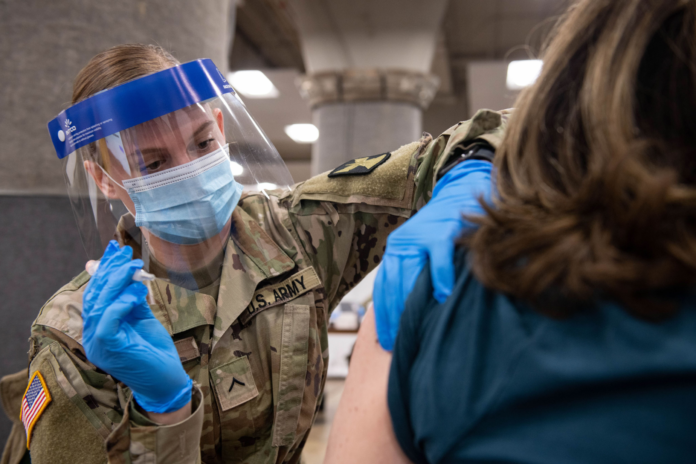(The Center Square) — As Minnesota returns to a semblance of normalcy with an increasing number of injected COVID-19 vaccines, one Republican aims to ban “vaccine passports.”
SF 1589 aims to ban forced COVID-19 vaccinations, forced digital contact tracing, and required proof of COVID-19 vaccination before entering a government business.
“Your personal health information should not be made public. I stand against the special interests that want your private health information,” Senate Health Committee Chair Michelle Benson, R-Ham Lake, posted on Facebook.
“You should not have to wear or display a symbol or card that shows your disease status,” Benson wrote. “Forcing people to use vaccine passports and digital contact tracing violates our individual rights.”
Sen. Chris Eaton, DFL-Brooklyn Center, argued contact tracing was “public health 101.”
“It’s science. It’s how we make sure that a disease doesn’t spread to the more vulnerable people,” Eaton said in a committee hearing.
Benson argued businesses don’t require disclosure of flu or measles vaccinations, and the same rule should apply to COVID-19 vaccinations.
About 1.7 million Minnesotans have completed the first vaccine, while 1.1 million have completed the series. The Centers for Disease Control and Prevention guidance declare fully vaccinated people may resume domestic travel, and don’t need to get tested before or after travel unless required by the destination. They can also visit with other fully vaccinated people indoors without wearing masks or physical distancing.
Some airlines and others in the travel industry are voicing support for vaccine passports to boost pandemic-depressed travel.
The United States isn’t distributing vaccination passports. Some worry requiring COVID-19 vaccine records to enter certain businesses could spur a black market for fake vaccination cards, fueled by photoshopped pictures from social media.
Gov. Tim Walz’s office didn’t respond to a request for comment.
However, in a blog post, the American Civil Liberties Union (ACLU) warned “there’s a lot that can go wrong” with vaccine passports.
“Any proposal for vaccine credentials must be primarily paper-based, decentralized, and protect privacy,” ACLU senior policy analyst Jay Stanley said.
“There are a lot of people who don’t have cellphones, especially some of the most vulnerable people in our society,” Stanley told CNN. “Over 40% of people over 65 do not have smart phones, so any system must have a paper-based functionality or it’s a nonstarter.”
The ACLU instead recommended a paper-based system with a digital option.
“We don’t want people who can’t afford to have cellphones to be excluded from societal benefits,” Stanley said. “We want people to be able to go to concerts or private events even if they don’t own a cellphone.”


















